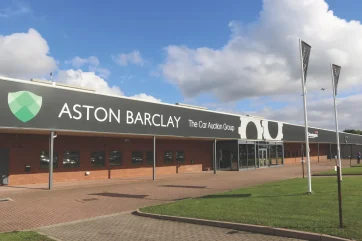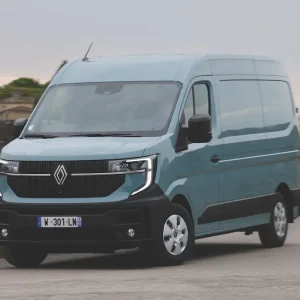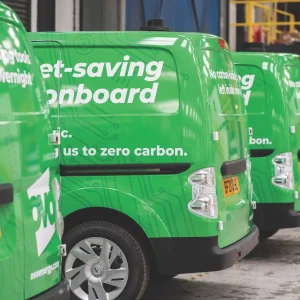
This year’s Remarketing Company of the Year is auction firm Aston Barclay. Although sales of over 10,000 units were achieved in 2024, the first half of the year in particular proved particularly challenging across the remarketing arena. Supply of vehicles exceeded demand and so Aston Barclay’s strategy was refined to ensure that the right vehicles were exposed to a suitable buyer profile. Buyer events were held, including summer barbecues, but perhaps more important were initiatives such as an expansion of the range of refurbishment options available to vendors. In addition to introducing smart repairers at every sale location, grade enhancements were offered and even MOT testing services have been available for the first time. With traders less willing to purchase vans needing costly and time-consuming preparation, the availability of ‘ready to sell’ prepared vehicles proved to be an enticing proposition. Aston Barclay sought out more specialist vehicles from vendors, including public sector bodies. This gave trade buyers something different to put on the forecourt, rather than vans similar to those at every other outlet.
The company is proactive in matching buyer and seller. It employs five dedicated buyer executives who have used data insight to identify specific, even niche requirements and have conducted targeted call campaigns in order to place stock. Recently, this resulted in a batch of 90 vans being sold to one customer.
In 2024, NAMA vehicle condition grading was introduced across the LCV remarketing industry, and Aston Barclay was one of the pioneers in rolling the service out. Allowing vehicles to be graded from 1 (the best) to U, the scheme takes into account wear and tear on a working vehicle allowing for a more accurate and realistic overview of the van’s true condition.
Training is a key part of ensuring staff are up to speed with the latest industry developments, and with some team members now qualified to IMI level 1 in Electric Vehicles, a consistent level of knowledge is in place across the organisation. This training has been cascaded down to fleet and leasing vendors, assisting them in understanding the peculiarities of an electric van compared to its ICE counterpart.
During 2024, Aston Barclay introduced its LCV Hub. Providing buyers and vendors alike with information on up to date market trends and industry insight, the microsite also allows customers to easily browse through vehicles coming up for sale, place bids directly, and stay updated on future sale events. Designed to enhance the selling and buying experience for all its customers, the LCV Hub also details all the services on offer, be it de-fleeting, refurbishment or storage. For those who don’t access the hub on a regular basis, a fortnightly newsletter dedicated to LCV’s keeps customers up to speed with the latest news.
The pickup sector, forming between 8% and 12% of the company’s throughput can be a volatile area for supply and demand, not to mention legislation and taxation changes, especially in the past 12 months. To this end, a dedicated quarterly publication is offered to buyers and vendors showing sale prices and trends in the sector. In addition, the Aston Barclay LCV desirability index is published monthly, helping customers to see the number of physical and online bids together with catalogue views, giving insight into the amount of interest vehicles are generating. These metrics can give a prospective buyer an indication of how quickly a vehicle could be retailed, and what margin could potentially be achieved.

Highly Commended: Manheim
Gaining this year’s Highly Commended accolade, Manheim Auction Services UK has had a successful year, handling around 100,000 LCVs through its dedicated centres. With a mixture of physical, online and hybrid sales from the sites around the UK, the first six months of 2024 saw a 24% year-on-year increase in throughput, and the company saw a number of new, high-profile vendors take advantage of its services. Now, 2024 is expected to show the strongest ever performance by the business, with 75.5% of vans selling first time, and with an average value of £8,622, up £2,295 from a pre-pandemic 2019.
Claiming to be the first to adopt the new NAMA vehicle condition grading system, Manheim assessed 5,000 vans in the first month of operation. Manheim worked side by side with NAMA and other industry partners on the project, which was 10 years in the making.





